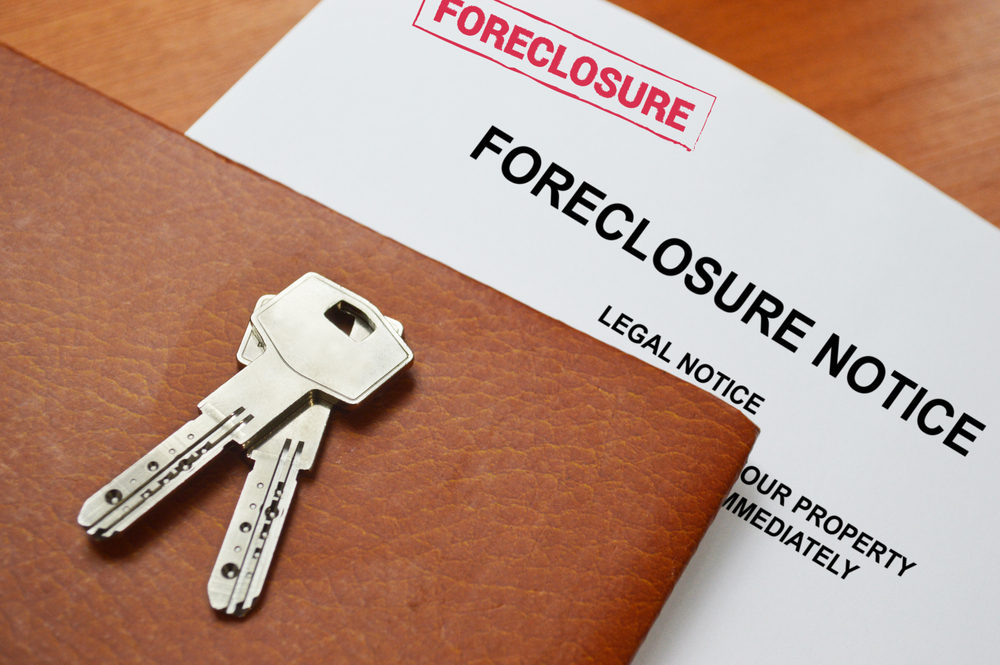When a landlord decides to sell their property, tenants often find themselves uncertain about their rights and what the future holds for their living situation. This situation is common in New York State, where the real estate market is dynamic and competitive.
For tenants, understanding their rights is crucial. New York State has robust tenant protection laws designed to ensure stability and fairness. Key rights include the ability to remain in the apartment under the current lease terms, even if the property is sold. These protections are vital for maintaining housing security and preventing abrupt changes that could disrupt tenants’ lives.
In this article, we will delve into the specific tenants rights have when their landlord sells the property and how these rights are upheld across New York State.
I. Tenant’s Right to Remain (Statewide)
A. Applies to Both: Fixed-Term Leases and Month-to-Month Leases
In New York State, tenants are afforded the right to remain in their apartments regardless of whether they have a fixed-term lease or a month-to-month lease, even when the property changes ownership.
Fixed-Term Lease: For tenants with a fixed-term lease—typically one year or less—the new owner is legally required to honor the existing lease terms until the lease expires. This means that the sale of the property does not alter the tenant’s right to occupy the rental unit for the duration of their lease. The tenant should continue paying rent to the new owner as stipulated in their original lease agreement. This protection ensures that tenants do not face sudden displacement and can plan their housing situation with certainty until their lease term concludes.
Month-to-Month Lease: Tenants on a month-to-month lease also have protections, although the situation is slightly different. The new owner must adhere to proper eviction notice procedures if they wish to terminate the lease. Depending on the location within New York State, the notice period varies:
- 30 days’ notice if the tenant has lived in the apartment for less than one year.
- 60 days’ notice if the tenant has lived in the apartment for one to two years.
- 90 days’ notice if the tenant has lived in the apartment for more than two years.
These notice periods ensure that tenants on month-to-month leases are provided with adequate time to find alternative housing arrangements, thus minimizing disruption and offering a fair transition period.
II. Rights Under the Lease (Statewide)
A. New Owner Inherits Obligations of the Old Lease
When a property is sold, the new owner steps into the shoes of the previous landlord and inherits all the obligations stipulated in the existing lease. This rule applies statewide across New York. Consequently, the terms of the lease, including the rent amount, necessary repairs, and access to amenities, remain unchanged. The new owner cannot alter the lease terms until the lease expires.
- Rent Amount: The new owner must continue to charge the rent amount specified in the existing lease. Any attempt to increase the rent before the lease term ends is prohibited unless otherwise specified in the lease agreement.
- Repairs: The responsibility for maintaining the property and conducting necessary repairs transfers to the new owner. Tenants retain the right to request repairs and expect the new owner to address maintenance issues promptly and efficiently.
- Amenities: Any amenities that were included in the lease, such as access to common areas, parking spaces, or laundry facilities, must remain available to tenants. The new owner cannot revoke these amenities without proper cause or after the lease has expired.
B. Tenant’s Responsibilities Stay the Same
Just as the new owner must uphold the lease’s terms, tenants are also required to fulfill their responsibilities under the lease agreement. These responsibilities include:
- Timely Rent Payment: Tenants must continue to pay their rent on time as outlined in the lease. The recipient of the rent payment may change, but the obligation to pay rent punctually remains the same.
- Maintaining the Property: Tenants are expected to take reasonable care of the rental unit and comply with all maintenance requirements stated in the lease. This includes keeping the property clean, reporting necessary repairs promptly, and not causing damage to the premises.
III. New Landlord and Tenant Interaction (Statewide)
A. Tenant’s Right to Reasonable Access for Repairs or Showings (with Proper Notice)
When a new landlord takes over a property, tenants retain their right to reasonable access, ensuring that any necessary repairs or property showings are conducted with proper notice. This right is upheld statewide in New York.
- Repairs: Tenants have the right to request and expect timely repairs from the new landlord. The landlord must provide reasonable notice before entering the rental unit to perform repairs. Generally, a 24-hour notice is considered reasonable, although the specific timing can depend on the nature and urgency of the repair.
- Showings: If the property is being shown to potential buyers or renters, the new landlord must also provide reasonable notice to the tenants. Again, a 24-hour notice is standard, but this can vary based on the lease agreement or specific circumstances. The goal is to ensure that tenants’ privacy and convenience are respected while allowing the landlord to manage their property effectively.
B. Tenant’s Right to Withhold Rent if Repairs Go Unaddressed (Following Proper Procedures)
Statewide in New York, tenants have the right to withhold rent if the new landlord fails to address necessary repairs. This right ensures that tenants do not continue to pay for a property that is not being adequately maintained. However, tenants must follow proper procedures to exercise this right legally:
- Document the Issue: Tenants should document any maintenance issues and request repairs from the landlord in writing. This creates a record of the problem and the tenant’s efforts to resolve it.
- Reasonable Timeframe: The landlord must be given a reasonable amount of time to make the repairs. What constitutes a reasonable timeframe can vary depending on the severity of the issue. For instance, a lack of heat in winter may require immediate attention, while a less urgent repair might allow for a longer response time.
- Notice of Rent Withholding: If the landlord fails to address the repairs within a reasonable period, tenants must inform the landlord in writing of their intention to withhold rent. This notice should detail the unresolved issues and reference previous repair requests.
- Escrow Account: In many cases, tenants are advised to place the withheld rent into an escrow account rather than simply not paying. This demonstrates good faith and a willingness to pay once the issues are resolved, which can be important if the matter goes to court.
IV. Lease Termination by New Owner (Optional)
A. “Cash-for-Keys” Agreements
One option for a new owner looking to vacate tenants early is through a “Cash-for-Keys” agreement. This arrangement can be mutually beneficial, offering tenants a financial incentive to leave the property before their lease term ends. Here’s how it works:
- Offer and Negotiation: The new owner approaches the tenant with an offer of money in exchange for the tenant agreeing to vacate the premises by a specified date. This amount can vary but should be sufficient to cover moving expenses and potentially offer additional compensation for the inconvenience.
- Agreement Terms: Both parties must agree on the terms, including the amount of money, the vacate date, and any conditions. This agreement should be put in writing to protect both parties.
- Execution: If the tenant accepts the offer, they receive the agreed-upon payment once they vacate the property and return the keys to the landlord. This approach can save the landlord the time and expense of formal eviction proceedings and provide tenants with financial support for relocation.
B. Eviction: Only for Specific Reasons and Following Legal Procedures
If a “Cash-for-Keys” agreement is not feasible, the new owner may consider eviction, but this can only be done for specific reasons and must follow strict legal procedures:
- Grounds for Eviction: In New York State, valid reasons for eviction include non-payment of rent, violating lease terms, causing significant property damage, or engaging in illegal activities on the premises. The new owner cannot evict tenants simply because they wish to sell the property or use it differently.
- Notice Requirements: The eviction process starts with providing the tenant with the proper notice. The notice period depends on the reason for eviction and the length of the tenancy:
- 14-Day Notice for non-payment of rent.
- 30-Day Notice for other lease violations or at the end of a month-to-month tenancy if the tenant has lived there for less than one year.
- 60-Day Notice if the tenant has lived there for one to two years.
- 90-Day Notice if the tenant has lived there for more than two years.
- Court Proceedings: If the tenant does not comply with the notice, the landlord must file a petition with the local housing court to begin formal eviction proceedings. The tenant has the right to present their case in court, and a judge will make the final decision.
- Execution of Eviction: If the court rules in favor of the landlord, a warrant of eviction is issued, and the tenant will be given a final date by which they must vacate the property. The eviction is then carried out by a sheriff or marshal if the tenant does not leave voluntarily.
Recommended: How To Notify Tenants of the Sale of Property in New York
V. Rent-Stabilized/Rent-Controlled Apartments (NYC Specific)
In New York City, tenants living in rent-stabilized or rent-controlled apartments enjoy additional rights and protections that go beyond the statewide tenant laws. These regulations are designed to provide even greater stability and security for tenants in one of the country’s most densely populated and expensive housing markets.
A. New York City (NYC) Only: Additional Rights and Protections for Tenants in These Apartments
Rent-Stabilized Apartments:
- Lease Renewal Rights: Tenants in rent-stabilized apartments have the right to renew their leases indefinitely. The new landlord must offer a renewal lease, typically with an increase based on guidelines set by the Rent Guidelines Board.
- Rent Increase Limits: Rent increases for rent-stabilized apartments are tightly regulated and must adhere to annual guidelines set by the Rent Guidelines Board. These limits are designed to prevent excessive rent hikes and ensure affordability.
Rent-Controlled Apartments:
- Long-Term Tenancy Protection: Rent-controlled apartments offer even more robust protections, as rents are kept very low and increases are minimal. Tenants often have lifelong tenancy rights.
- Inheritance Rights: Tenants in rent-controlled apartments have the right to pass on their tenancy to family members under certain conditions, ensuring long-term housing stability within families.
B. Eviction Even Harder for New Landlord (Limited Reasons)
Evicting tenants from rent-stabilized or rent-controlled apartments is particularly challenging for new landlords, as the grounds for eviction are severely restricted:
- Non-Payment of Rent: One of the few valid reasons for eviction, but the process still requires proper notice and a court ruling.
- Violation of Lease Terms: If a tenant is violating the terms of the lease (e.g., illegal subletting, causing a nuisance), the landlord must provide evidence and follow due process.
- Owner’s Use: In some cases, landlords may reclaim rent-stabilized apartments for personal use or for use by their immediate family, but this is subject to strict regulations and often requires the landlord to provide comparable housing or other compensation.
- Major Repairs or Demolition: Eviction for major repairs or demolition is rare and requires extensive approvals, including demonstrating that the work is necessary and not an excuse to displace tenants.
C. Seek Guidance from Tenant Rights Organizations (NYC Specific)
Given the complexities of NYC’s rent regulation laws, tenants in rent-stabilized or rent-controlled apartments should seek guidance from tenant rights organizations. These organizations provide invaluable assistance:
- Legal Advice: They can offer legal advice on specific situations and help tenants understand their rights and options.
- Advocacy: They can advocate for tenants’ rights in negotiations with landlords or represent them in court proceedings.
- Support: They can offer support and resources to help tenants navigate complex housing issues.
Recommended NYC Tenant Rights Organizations:
- Metropolitan Council on Housing (MCH): Provides a tenant hotline, legal clinics, and resources to help tenants understand and defend their rights. (https://www.metcouncilonhousing.org/program/tenants-rights-hotline/)
- Legal Aid Society: Offers free legal services to low-income New Yorkers, including representation in housing court and assistance with rent regulation issues. (https://legalaidnyc.org/)
- NYC Rent Guidelines Board (RGB): While primarily setting rent guidelines, they also provide resources and information on tenants’ rights. (https://rentguidelinesboard.cityofnewyork.us/)
Conclusion
Understanding your rights as a tenant in New York State is crucial, especially when your landlord sells the property. Whether you have a fixed-term lease or a month-to-month agreement, the new owner must honor your existing lease terms and provide proper notice for any changes or evictions. In New York City, additional protections for rent-stabilized and rent-controlled apartments make evictions even harder and ensure housing stability.
For tailored advice and support, consider reaching out to local tenant rights organizations or legal aid societies. Staying informed and proactive will help you navigate these changes and protect your housing rights effectively.
Disclaimer
It’s important to note that the information provided in this article is for informational purposes only and should not be construed as legal advice. While we strive to provide accurate and up-to-date information, laws and regulations may vary and can change over time. For specific legal advice regarding your individual situation, we recommend consulting with a qualified attorney or legal advisor.






